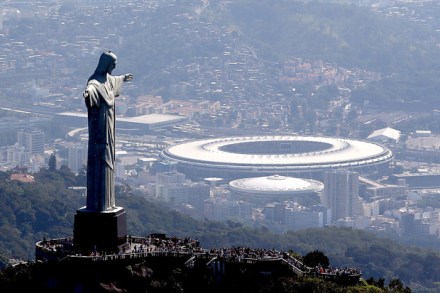The first favela
Where are you going?’ demanded the boy on the wall. A walkie-talkie clipped to his denim shorts crackled, but there was no sign of a weapon. ‘The English Cemetery,’ I answered. He slid down. ‘You need to go back that way. Take the road on the right.’ The street in question was a dustbowl where diggers flattened the ground for the tramlines that should have arrived in time for the Olympics. But no, he insisted, there was no way of reaching the cemetery through the favela. There are favelas and there are favelas, and the mesh of houses, shacks and alleys that extends across Morro da -Providência, above the English



















